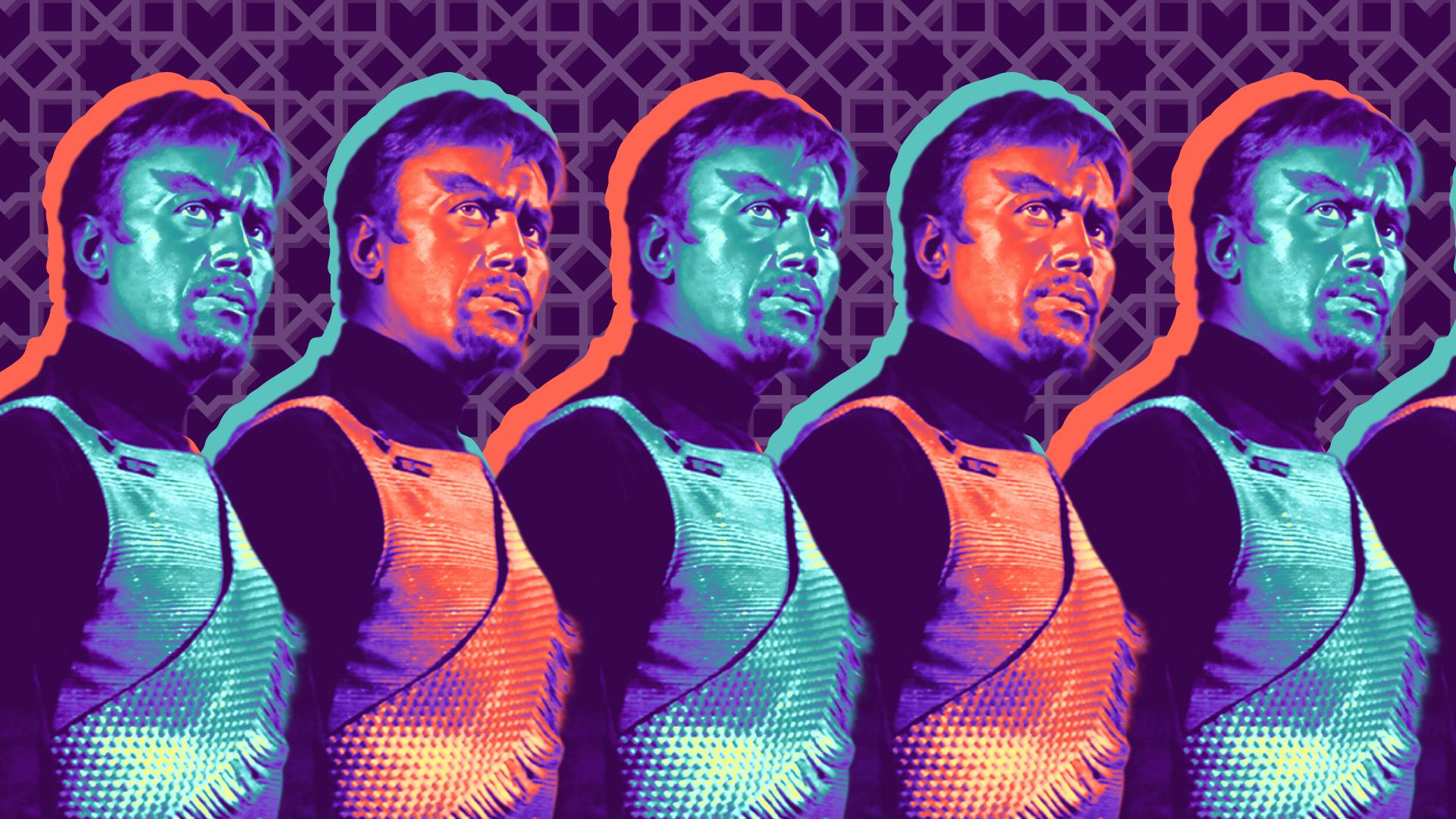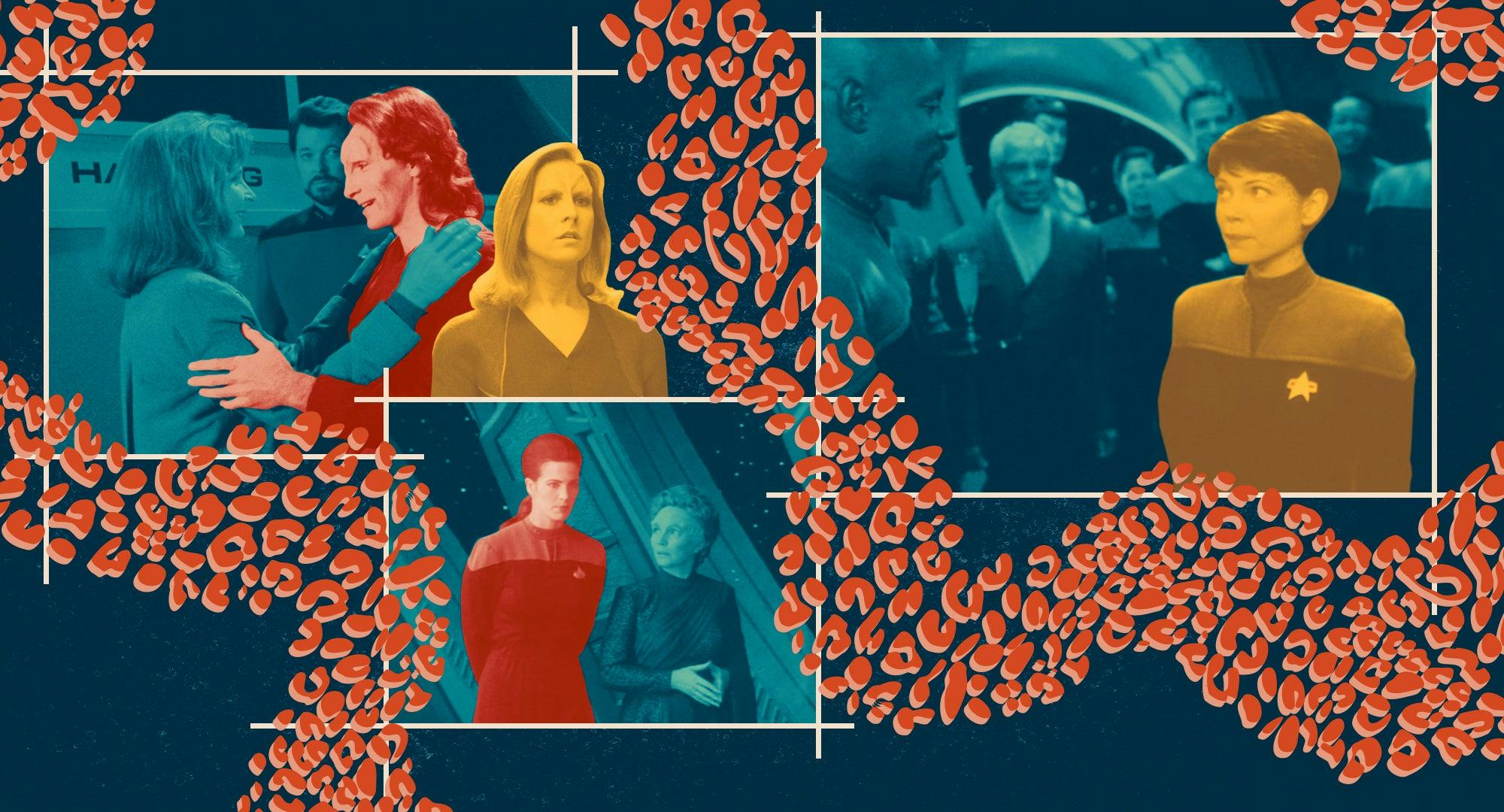Published Jun 22, 2023
Michael Burnham and Spock: Vulcan Poetics
Metaphorical poetic rhyming allows the audience to learn about a character because of symmetry with another.

StarTrek.com
"I have never disobeyed
your orders before, Captain,
but this time, I must. I know.
I know it is treachery and
it is mutiny, but I must do this.
I have no choice."
— Spock, to Pike ("The Menagerie")
"This is mutiny!"
— Saru, to Michael Burnham ("The Vulcan Hello")
While television shows and poetry are two different forms of art, there are elements shared between them. Some poetic structures have rhyming stanzas or patterns, which enhance their meaning and effect. That is also true of television narratives and characters. Sometimes different characters go through similar experiences — a kind of metaphorical poetic rhyming — where the audience learns about one character because of symmetry with another.
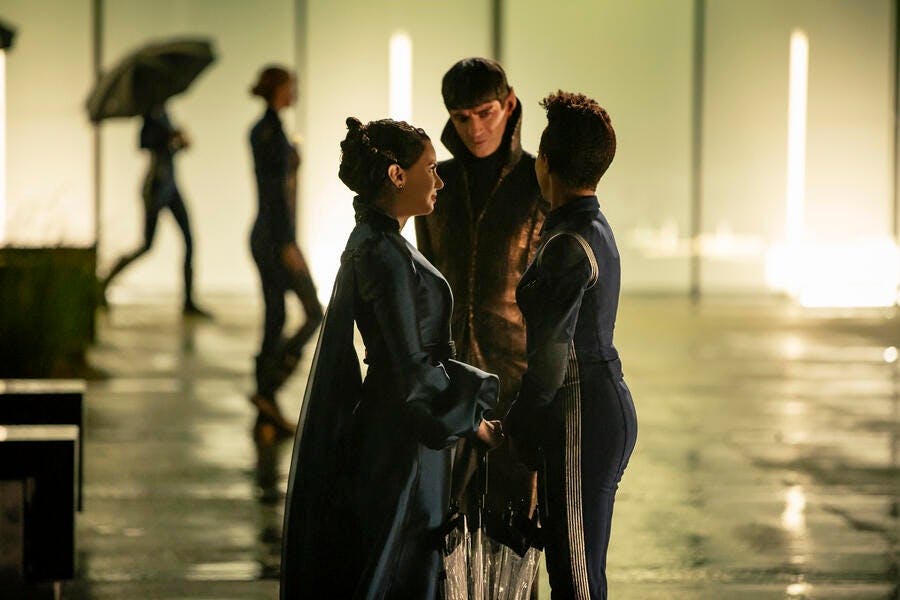
StarTrek.com
The early adventures of the Star Trek: Discovery crew featured a kind of poetic symmetry between Michael Burnham and her step-brother Spock. Despite the fact that he did not appear physically on the show during Season 1, Spock fascinatingly loomed large as a result of the Michael-Spock parallel experiences, with inferences and direct references to him, including appearances by Sarek and Amanda and the U.S.S. Enterprise herself.
Especially of interest was the episode “Lethe,” which explored the reason for Sarek and Spock’s disenfranchisement from each other, established in The Original Series episode “Journey to Babel,” through the lens of Sarek and Michael’s troubled relationship.
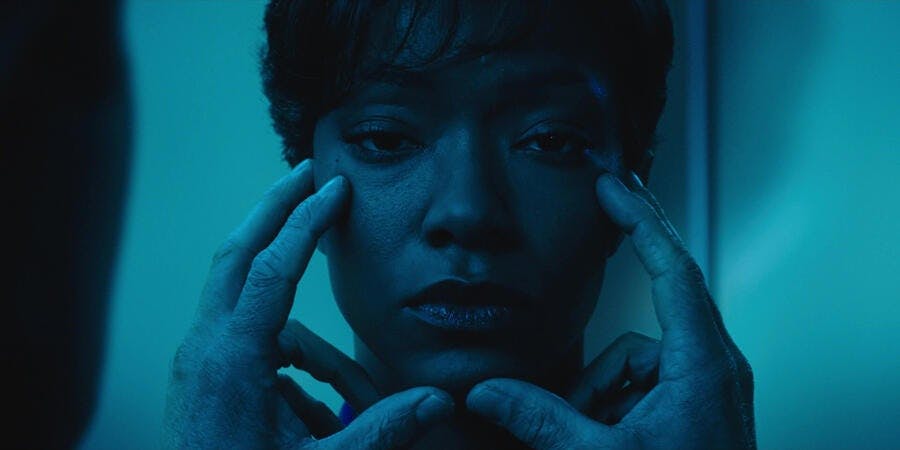
StarTrek.com
The poetic symmetry between Michael and Spock was posed from Discovery's very first episodes. As a caveat, however, this "poetic" symmetry is not meant to imply that the characters of Michael and Spock are copies of each other. Indeed, sometimes the characters had significance differences or inversions. For example, Spock reveals in “Unification” that he never mind-melded with Sarek; however, Burnham did when Sarek saved her life after a Klingon attack.
Additionally, Michael is trying to learn how to express her human emotions while Spock seeks to control his. They also have inverse relationships with Sarek, who opposed Spock’s entry into Starfleet, yet arranges for Michael’s service in the same organization. While there is little doubt that Spock and Michael Burnham are distinct and unique personalities, there are parallels worth exploring.
One of the most unique poetic rhyming parallels — and the one that has serious consequences for Spock and Burnham — is that both characters commit mutiny for what they believe is a higher purpose. Both act because they reason it to be necessary to saving or helping a respected commanding officer; for Spock it is his former, Captain Christopher Pike, while for Burnham, it's her current captain, friend, and mentor, Philippa Georgiou. Furthering the poetic symmetry, both characters use a Vulcan neck pinch against a fellow officer during their mutiny.
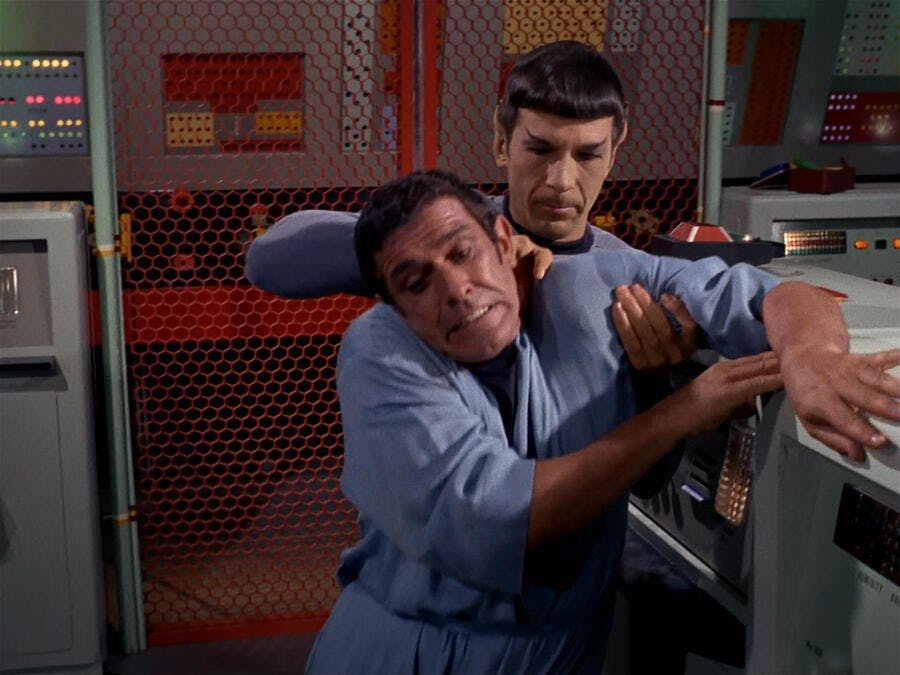
StarTrek.com
In the episode “The Menagerie,” Spock’s mutiny begins with his arranging of a fake message from Starbase 11 to lure the U.S.S. Enterprise to Pike’s location. Spock disobeys Pike’s direct order not to proceed with his plan to bring his former captain to Talos IV. While Spock uses Starfleet’s computers to fake confirmation of secret orders, he uses a Vulcan neck pinch to render Chief Humbolt temporarily unconscious. Once the Enterprise is committed to its journey to Talos IV, and with Kirk and supposedly Commodore Mendez in pursuit, Spock surrenders himself to McCoy. “The charge is mutiny, Doctor. I never received orders to take command.” During his court-martial, Spock implores, “Captain..., Jim, please don't stop me. Don't let him stop me. It's your career and Captain Pike's life. You must see the rest of the transmission.”
Additionally, Spock would also use his Vulcan neck pinch against a fellow officer in Star Trek: The Motion Picture, when he takes it upon himself, without permission, to directly explore and communicate with V’Ger using a spacesuit — another parallel which manifests itself when adopted sister Michael dons a similar suit to explore and communicate with unknown entities discovered near the damaged relay in Discovery's premiere episode.
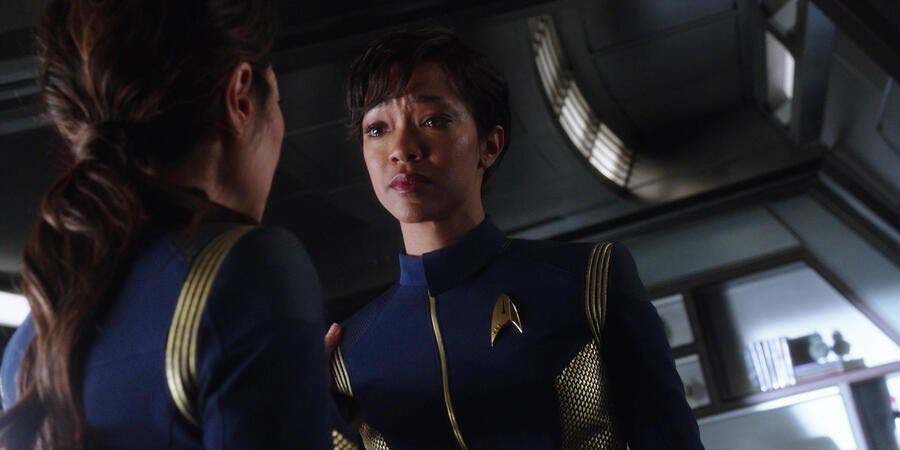
StarTrek.com
During “The Vulcan Hello” and “Battle at the Binary Stars,” Burnham uses a neck pinch, rendering Captain Georgiou temporarily unconscious, when it becomes clear that Burnham’s recommendation of aggression as a strategy for dealing with the Klingons is not an option. As Captain Georgiou takes back her command, Burnham implores, “Captain, please. I’m trying to save you. I’m trying to save all of you.”
Like Spock, Burnham believes that what she is doing serves the greater good, despite knowing that her actions are mutinous. They both know that the needs of the many outweigh the needs of the few — or the one. Their mutinies show that Burnham and Spock are logical, yet unconventional, perhaps a reflection of their unique backgrounds and childhoods. Of course, one important difference that speaks to the contrast between the trends of TV during the 1960s and today is that Spock’s mutiny is explained, forgiven, and resolved within two episodes, while it takes an entire season’s arc to achieve the same result for Michael in the Season 1 finale, “Will You Take My Hand?”
They may be different, but it is safe to say that Michael and Spock rhyme.
This article was originally published on May 7, 2018.
Maria Jose and John Tenuto are both sociology professors at the College of Lake County in Grayslake, Illinois, specializing in popular culture and subculture studies. The Tenutos have conducted extensive research on the history of Star Trek, and have presented at venues such as Creation Conventions and the St. Louis Science Center. They have written for the official Star Trek Magazine and their extensive collection of Star Trek items has been featured in SFX Magazine.


